What could Belarus lose due to food sanctions?
Euroradio has analyzed what could disappear from shops if Belarus joined the Russian anti-West food sanctions.
I asked Euroopt sales-assistants about the products that would disappear if Belarus joined the Russian sanctions as a Customs Union member state. The receptionist replied:
“Dutch tomatoes would disappear. But we have Belarusian tomatoes. The Dutch ones cost 13 thousands a kilo and the Belarusian ones – 7 thousand roubles.”
She also mentioned nuts, fresh and fresh-frozen fish, fruit and vegetables.
Belarusian tomatoes seem to be cheaper than the imported ones by 5 thousand roubles. But it is summer now. Tomatoes would be as rare as oranges in the Soviet epoch in winter!
There are a few places where you can buy imported cheese in Kamarouski Market. The sales-assistant was advertising:
“Which cheese do you like more? We have a wide selection of cheeses here – Dutch, Polish, French. And German!”
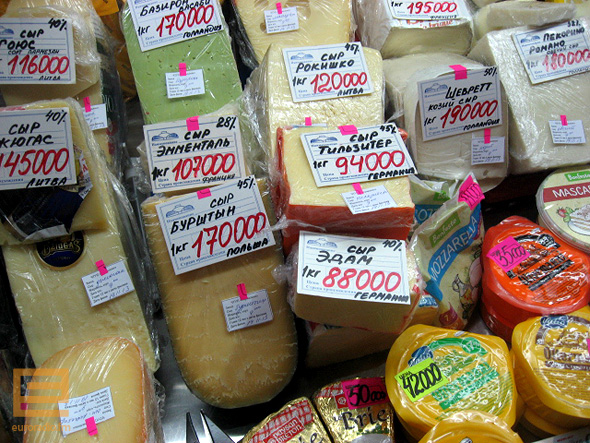
Foreign cheese would disappear.
The woman did not tell me why the the imported cheese prices were the same as the prices of Belarusian cheese. If Belarus joined the sanctions, only Belarusian cheeses would remain. There would be no Camembert or Mascarpone.
I headed for the trade centre Korona. Foreigners like this hypermarket for its wide selection of imported food.
The first stall is filled with juices – Spanish, German, Polish and Italian. All these countries are blacklisted. Only Belarusian and Russian juices would stay.
Fruit and vegetables come next. Belarusians would still have access to fresh Macedonian potatoes. But there would be no Polish apples, Dutch and Spanish celery and tomatoes, white potatoes from Italy, French shallot, mangoes and peaches.
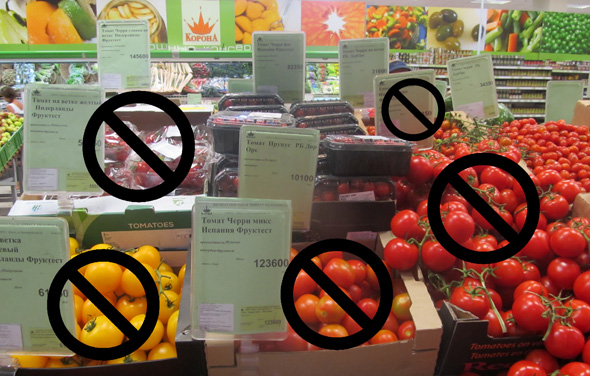
What would stay? Belarusian pears and apples that cannot be preserved until winter for some reason. There would still be pineapples, coconuts and lemons from the South-African Republic.
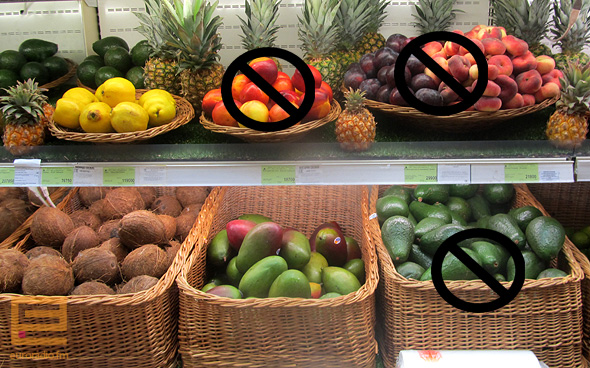
Pineapples, coconuts and lemons from the South-African Republic would stay.
... there would be no peaches and plums.
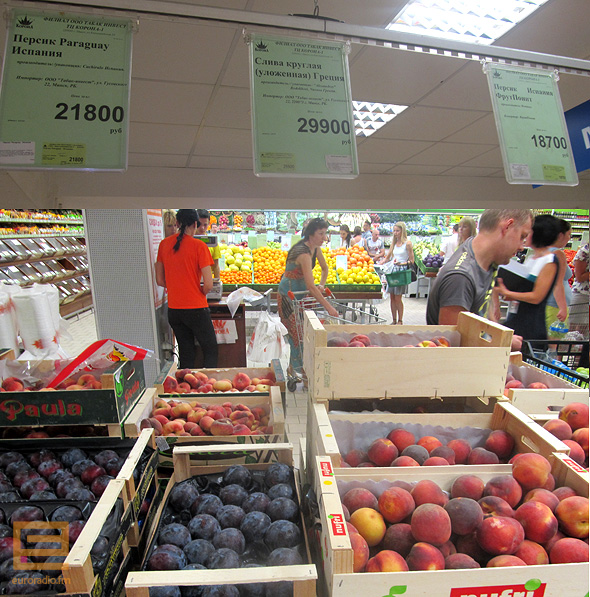
Belarus is an active importer of fruit and vegetables, Belstat says. For instance, our country spent 93 million dollars on Polish apples, 11.6 millions – on tomatoes and 9.6 million – on cabbages in January-May 2014.
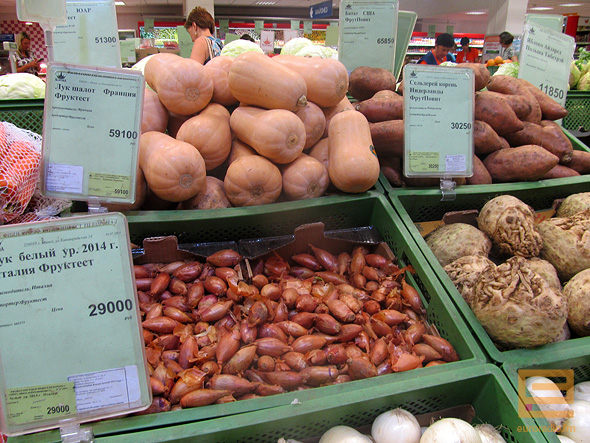
All these vegetables come from ‘enemy’ states!
Belarusians could lose salt-water fish too. We paid over 32 million dollars for Norwegian fish in January-May.
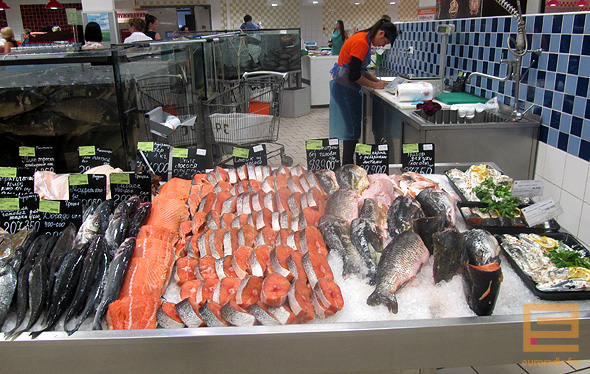
All the fish is Norwegian and Dutch. Only ice would stay here.
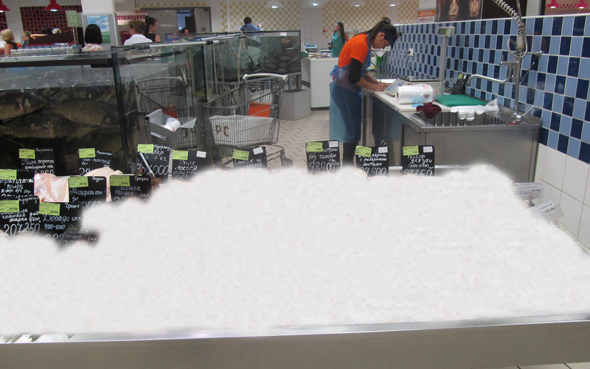
All the fresh-frozen fish in Korona is imported from Norway and the Netherlands. The sales-assistant drew my attention to Belarusian mackerel.
“Here is Belarusian mackerel. But you probably understand that it is imported. It was only marinated in Belarus,” the sales-assistant explains the trick.
I noticed alcohol discounts when I was already leaving. It is good that Russia has not imposed sanctions on alcohol. However, there is cheap Belarusian low-quality fruit wine.

















